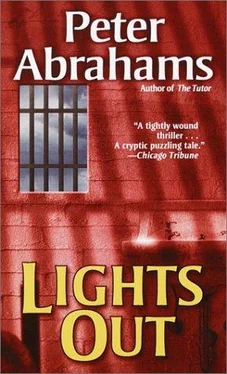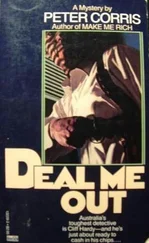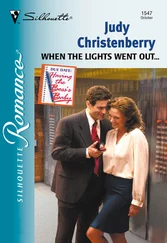The door opened. On the other side stood a big man in a pinstripe suit. He wore half glasses, had graying hair, a fleshy face, a thickened body. It took Eddie a few moments to see Jack somewhere inside him.
“Yes?” Jack said.
“Jack.” There was mist in the air all of a sudden, blurring his vision, the way it had blurred as the white station wagon drove him out of prison. None of that, Eddie told himself, and made it go away. “Jack. It’s me.”
Jack took off his half glasses and stared. “Oh, my God.” He covered his heart. “Oh, my God.”
And next? Eddie was ready for a handshake, an embrace. Neither happened. Jack looked over his shoulder. At a coffee table in the room behind him sat a blond woman in a gray-flannel suit, a little coffee cup in her hand; there was a French name for it that Eddie couldn’t remember. She was straining to see who was outside.
“Eddie. Jesus.” Jack turned to the woman. “One second, Karen,” he said. Then he stepped out into the hall, half closing the door behind him.
Jack glanced up and down the hall. He had a little pouch of fat under his chin. “You’re not…”
“Not what?”
“On the lam, or anything?”
On the lam. Was this an attempt to speak the language he thought Eddie’s? The tiny and archaic phrase measured the enormity between them. Eddie almost laughed. “I’ve paid my debt to society,” he said with a straight face. As long as they were going to talk silly.
Jack got it. He smiled. Jack had changed a lot, but his smile was the same: a flash that promised fun, lots of it and slightly dangerous. “You son of a bitch,” he said.
Then came the embrace. They threw their arms around each other. Jack was still big and strong, but now there was some softness to his body. He shook a little. Eddie realized Jack was crying. Walking down the hall he’d been close to crying too. Now it was an impossibility.
They separated. Jack held him at arm’s length. “You look good, Eddie.”
“Yeah.”
“How are you?”
“All right.”
“You’re in shape.”
“Yeah.”
“How are you?”
“All right.”
“God, I’m glad to hear that.” Jack looked into the room.
“Have I come at a bad time?” Eddie asked.
“So what’s new?”
Jack laughed. Eddie didn’t.
Jack wiped his mouth with the back of his hand. “I’ve got a client, that’s all. Come in, if you don’t mind waiting in the bedroom. I’d get rid of her, but I’ve been trying to sew this deal up for months. It won’t be long.”
“I can come back, if you like.”
“Come back?” Jack said. “Bro!” And he wrapped his arm around Eddie’s neck in that old familiar lock, half dragging him into the room.
“Karen,” he said, letting Eddie go. “I want you to meet someone very special to me-my brother, Eddie. Eddie, Karen de Vere.”
“A pleasure,” the woman said. She wore tortoiseshell glasses; behind their lenses her eyes were cool blue.
“Eddie’s just dropped in from out of town,” Jack said. “Rather unexpectedly, but that’s Eddie.” He moved Eddie toward the bedroom. The Monarch fell out of Eddie’s pocket. The woman leaned forward in her chair to see what it was. Eddie stooped to pick it up.
“Where do you live, Eddie?” the woman asked.
Jack was watching him. “Upstate,” Eddie said.
“Whereabouts?” said the woman. “I’m from upstate myself.”
Buffalo? Syracuse? Were those considered upstate, or did the term refer only to the towns near New York? Eddie wasn’t sure. “Albany,” he said.
“I’ve got a lot of friends there,” the woman said. “I grew up on a farm near Troy.”
Jack said: “It’s a small world.” Then, to Eddie: “We won’t be too long. Help yourself to the minibar. Within reason.” He smiled, to show the woman that it was a joke, and Eddie was a bit of a character.
Eddie went into Jack’s bedroom. He heard the woman say, “He sounds just like you.” The door closed behind him.
Except for all the electronic equipment, Jack’s bedroom reminded Eddie of a movie he’d seen in the inmates’ rec room, a movie where a bitter couple lived in luxury and said nasty things to each other. And then there was the equipment: four computer terminals, three phones, a printer, and what he assumed to be a fax machine; even as he watched, it dropped a sheet of paper into a tray. He glanced at it: all numbers and abbreviations, incomprehensible to him.
Eddie looked out the window. Jack had a view of Central Park. The landscape was brown, with a few gray patches of snow here and there. Rain was falling again, billowing past in long curving patterns. Down below, dull-colored people beetled along like characters in a computer game.
Warm and dry, all city sounds muffled, Eddie watched them for a while. This was nice. He opened the minibar, found beer and wine and a carton of orange juice at the back. “Not from concentrate. Shake first for better taste.” He sat in a gilded chair, shook the carton, drank from it. Delicious. One of the computer screens flashed a message about Vestron dividends. The fax machine slid out another sheet. Eddie got up and looked at it. This one was from the Mount Olive Extended Care Residence and Spa in Darien, Connecticut. “Dear Mr. Nye: Please call re your account.” Then came another fax full of numbers and abbreviations.
A copy of the Financial Times lay on the couch. Eddie picked it up and started reading. In this room it began to make sense. Eddie recalled El Rojo poring over Business Week . He and Jack could probably have found a lot to talk about. Eddie couldn’t imagine Jack at the steel table in the prison library, but he could easily picture El Rojo in a room like this. El Rojo probably had whole houses like it in Colombia, or on the Riviera, or some other fancy place Eddie had encountered in his reading. That would make living in that cell in C-Block all the more unbearable. Eddie recalled the picture of El Rojo’s son, the dead shot in the cowboy outfit-Gaucho, wasn’t it, and hadn’t he had some other name too? — and found himself admiring El Rojo’s stoicism, his self-control. Of all the inmates Eddie had known, he’d had the most to lose; and he’d lost it.
At that moment, Gaucho’s real name came to him: Simon. After the Liberator.
Jack entered the room. “What’s that?” he said.
Eddie realized he’d spoken “the Liberator” aloud. “Nothing.”
Jack had a check in his hand. He stuck it inside his jacket pocket, gazed at Eddie, shook his head. “This is something,” he said. “Really something. I’m having trouble believing it’s true. That you’re here, and everything.”
“Me too.”
Jack laughed. “The same old Eddie.”
“No.”
“No, of course not. Sorry. How are you, really?”
Before Eddie could reply, the fax produced another document. Jack went over, scanned it quickly-more than quickly, almost with the speed of a character in a silent movie-checked the other faxes in the tray, checked the computer screens, turned.
“Hungry? I’m going to order up some lunch. Or do you want to go out?”
Eddie wasn’t hungry. The bookstore boy’s little three-cornered pastry had somehow filled him up. “Whatever you like,” he said.
“Let’s eat in,” Jack said. “Give us more time. There’s so much I want to ask you. This is just so…” Words failed him. He smiled helplessly, then flipped Eddie a menu and sat down at the desk. “Just one sec.” He began tapping on a keyboard.
“What are you doing?” Eddie asked.
“Hedging.”
Eddie studied the menu. Many choices, many foreign words, prices he wasn’t prepared for. “I’ll have whatever you’re having.”
Читать дальше












